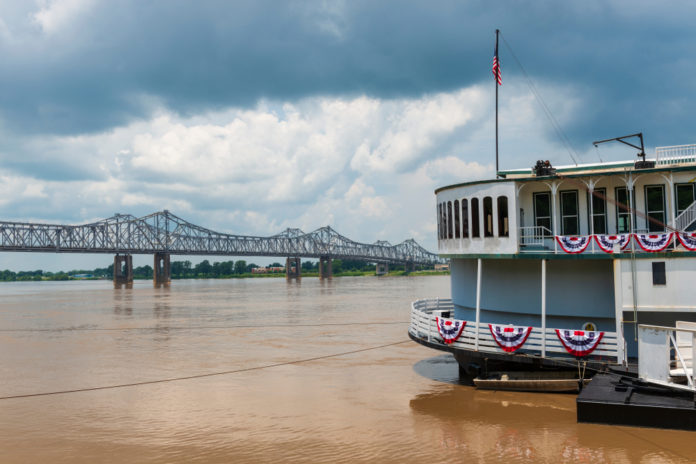Claim for damages and delays arising out of a project to install a culvert adjacent to the Mississippi is denied in part and sustained in part. The contractor sought to recover damages to the construction site caused by river flooding under various theories—e.g., defective specification, mutual mistake. But the board found that the flooding claim was negated by a patent ambiguity in the contract concerning flooding. The board found that in light of ambiguity, the contractor had a duty to inquire about the flooding and thus could not claim the flooding was unexpected. The board, however, sustained a second claim involving undocumented culverts at the site. The board reasoned that these culverts constituted a differing site condition, and the contractor could recover for the damages and delay caused by the differing condition.
In October 2012, the Army Corps of Engineers awarded CKY, Inc. a task order to install a culvert near the Mississippi River in New Orleans. One of the drawings in the contract documents contained a note that stated: “Construction shall only be performed from August to November when Mississippi River levels are lowest.” Despite those note, the Corps issued a notice to proceed in November 2012. Work began a few weeks later but was then delayed for months due to river flooding.
When CKY got back to work, it discovered two culverts that had not been identified in the contract and were not visible during the site visit. These culverts drained on the construction site. The runoff impacted CKY’s work. The parties amended the contract to include the additional drainage work that CKY would have to perform to divert the runoff from the culverts.
When CKY finished the project, it submitted claims to recover extra costs due to the flooding and the undocumented culverts. CKY claimed that to address the flooding it had been forced to construct a downstream coffer dam. CKY further alleged that the undocumented culverts created discharge that washed away CKY’s excavation area. The Corps denied the claims. CKY appealed to the ASBCA.
CKY argued that it was entitled to recover for its flooding claim under a defective specifications theory. Specifically, CKY argued that it been misled by the government about the time of year in which it should have been working on the project.
The board noted that the government’s implied warranty of its design specifications does not relieve a contractor of the its duty to inquire about a patent ambiguity, inconsistency, or mistake in the contract. Here, a note in a contract drawing stated that work should only be performed between August and November. But KCY knew that it would begin work at the end of November or in December. The note in the contract therefore created a patent ambiguity, which trigged CKY’s duty to inquire about the ambiguity prior to the closing of the solicitation. Having failed to do so, CKY could not recover under a defective specifications theory.
CKY also argued that the floodwater was a differing site condition. But the board noted that recovery under a differing site condition theory is barred when there is a patent ambiguity in the contract related to the condition. The ambiguity should put the appellant on notice that the condition may be present. In this case, the language concerning the performance time should have put CKY on notice of the possibility of flooding.
CKY next alleged that it was entitled to recover costs for the flooding under a mutual mistake theory. Again, however, the patent ambiguity in the contract obviated this theory. A contractor cannot rely on a mutual mistake when the mistake is a result of the party’s failure to exercise due diligence. CKY’s failure to inquire about the note in the contract was a failure to exercise due diligence.
But the board found CKY’s claim for costs arising out of the undocumented culverts more convincing. The board reasoned that CKY had satisfied the elements of differing site condition. The culverts were a materially different condition than those indicated in the solicitation. CKY had relied on the solicitation in preparing its bid, and those culverts caused damage to the project.
The Corps attempted to argue that CKY had already been compensated for this claim as part of the contract modification the parties had executed to deal with the culverts. But the board found that the modification did not include delays and added costs attributable to the culverts prior to the modification. The modification only covered the costs of the work required to mitigate the culverts moving forward.
CKY is represented by Daniel L. Baxter of Wilke, Fleury, Hoffelt, Gould & Birney, LLP. The government is represented by Michael P. Goodman, William G. Meiners, J. Emmanuel I. Santa Teresa, and Stephan C. Roth of the Army Corps of Engineers.




